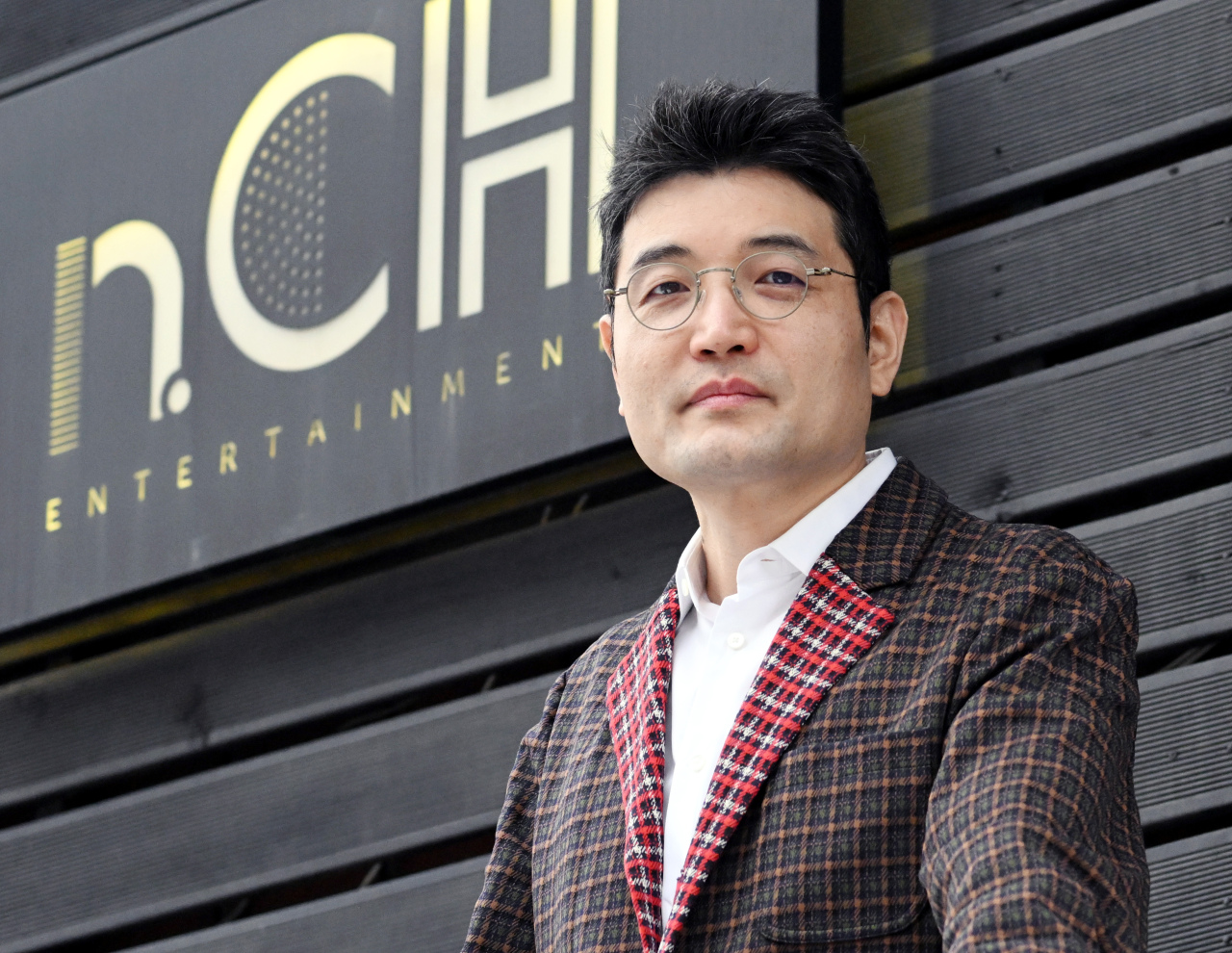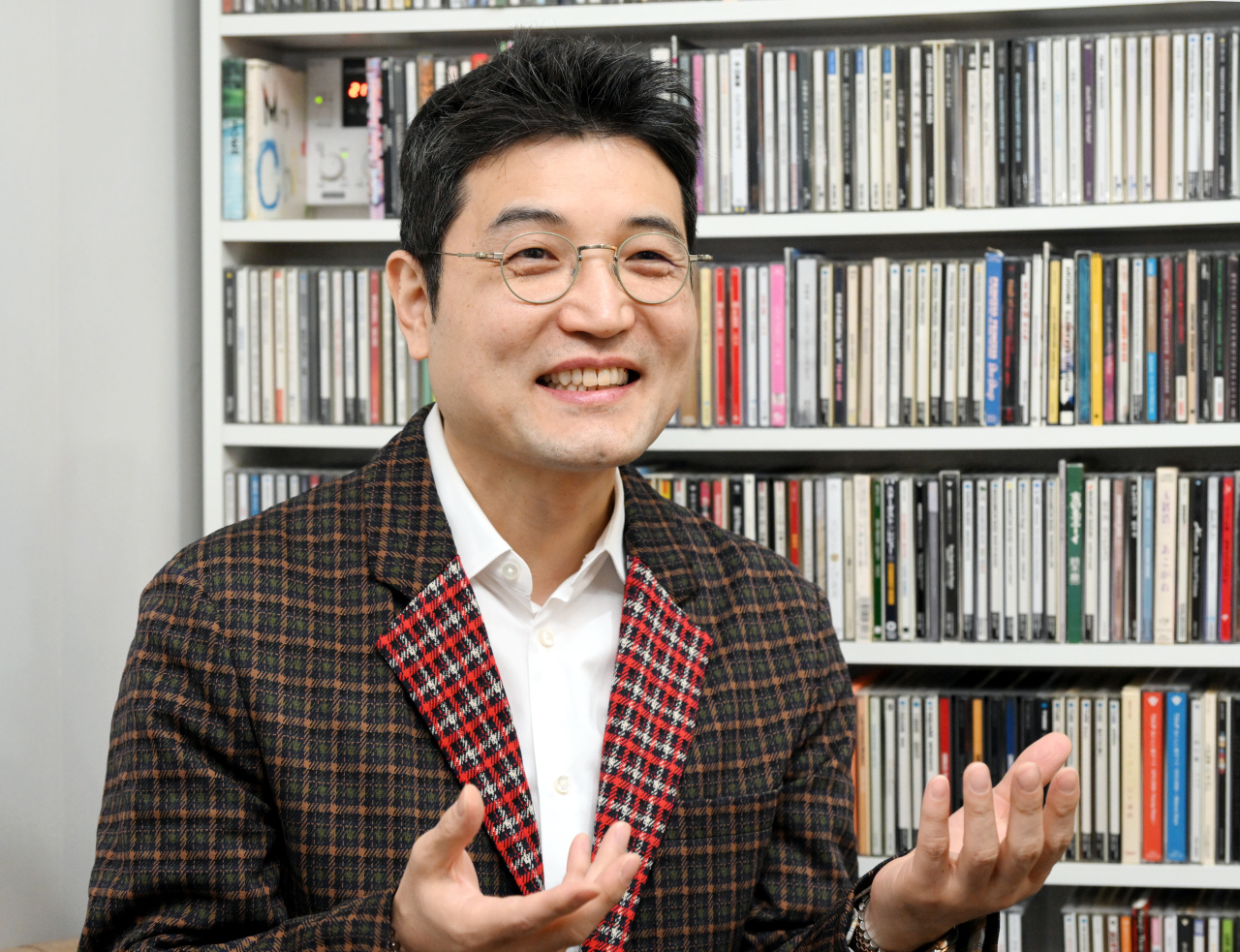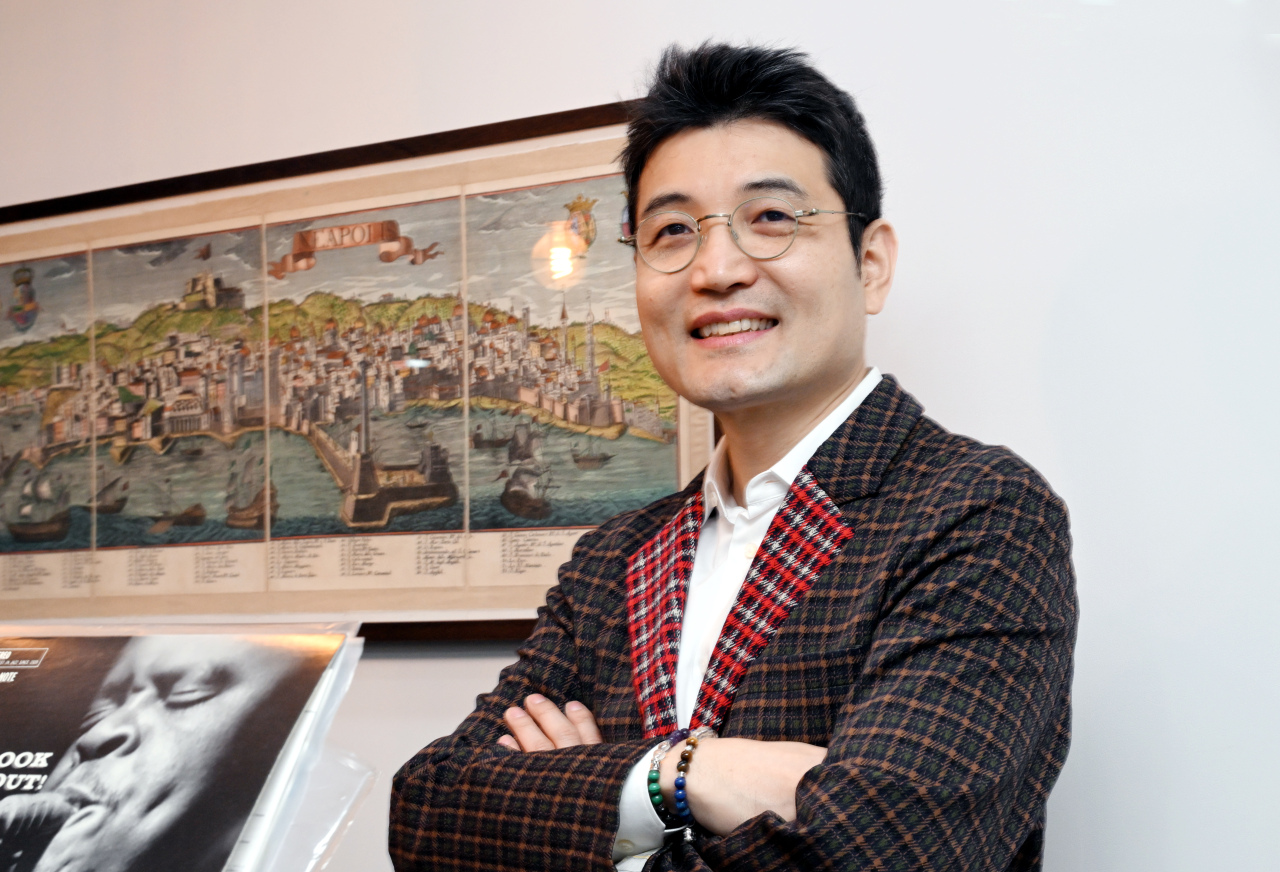[Herald Interview] ‘Time for K-pop to diversify’
Entertainment CEO Jeong Chang-hwan cites eye-catching choreographies, magnificent visuals as keys to K-pop’s success
By Jie Ye-eunPublished : April 6, 2022 - 16:25

Korean popular music, often abbreviated as “K-pop,” has become one of the most popular music genres around the world. In the span of a few decades, K-pop has grown from a regional sensation to a cultural powerhouse, fueled by the local agencies and artists’ endeavors to tap into the global music scene.
While the first generation of K-pop groups got their start in the early 1990s to 2000s backed by major entertainment firms, a mover and shaker behind K-pop’s global rise said the keys to the music genre’s immense popularity are its iconic features -- powerful dance performances and magnificent visuals.
“K-pop was able to go global because of the distinctive character of the music,” Jeong Chang-hwan, chief executive officer of n.CH Entertainment, said in a recent interview with The Korea Herald at his agency’s headquarters in southern Seoul. “The primary reason K- pop came to the global listeners’ attention is that it is dance music.”
If K-pop got its start focusing on genres that depend largely on lyrics, it may not enjoy the popularity it does today, Jeong said. Korea was a less known country back then and translation programs with which the listeners can look up the lyrics sung in Korean were not readily available, he added.
While the first generation of K-pop groups got their start in the early 1990s to 2000s backed by major entertainment firms, a mover and shaker behind K-pop’s global rise said the keys to the music genre’s immense popularity are its iconic features -- powerful dance performances and magnificent visuals.
“K-pop was able to go global because of the distinctive character of the music,” Jeong Chang-hwan, chief executive officer of n.CH Entertainment, said in a recent interview with The Korea Herald at his agency’s headquarters in southern Seoul. “The primary reason K- pop came to the global listeners’ attention is that it is dance music.”
If K-pop got its start focusing on genres that depend largely on lyrics, it may not enjoy the popularity it does today, Jeong said. Korea was a less known country back then and translation programs with which the listeners can look up the lyrics sung in Korean were not readily available, he added.

“To achieve global popularity, K-pop needed magnificent visual elements, including singers’ appearance, outfits and hairstyles. But most of all, powerful eye-catching choreography was necessary to make a greater impact on the audience in a brief period,” he said. K-pop’s global popularity was propelled further in the 2010s, thanks to YouTube, Jeong noted.
The 50-year-old K-pop expert began his career in the entertainment industry in 2000 as a road manager at S.M. Entertainment, working with first-generation K-pop bands, including H.O.T. and S.E.S. His assignments later included A&R, or artists and repertoire, and concert program planning. It was Jeong who introduced “SM Town,” the musical collective for the agency’s artists.
In 2012, Jeong was appointed CEO of SM C&C, an S.M. Entertainment subsidiary created under S.M. founder Lee Soo-man’s vision to expand into other entertainment sectors. Here, he signed top comedian-television host Kang Ho-dong, Shin Dong-yup and Lee Soo-geun to the label, Jeong said.
In 2017, the K-pop pioneer left S.M. and established his own company, n.CH Entertainment, launching the company’s first girl group Nature a year later. He also worked as the managing director of CJ ENM’s music division.
Jeong hinted that he is currently planning the launch of a boy group as early as the end of this year.
The 50-year-old K-pop expert began his career in the entertainment industry in 2000 as a road manager at S.M. Entertainment, working with first-generation K-pop bands, including H.O.T. and S.E.S. His assignments later included A&R, or artists and repertoire, and concert program planning. It was Jeong who introduced “SM Town,” the musical collective for the agency’s artists.
In 2012, Jeong was appointed CEO of SM C&C, an S.M. Entertainment subsidiary created under S.M. founder Lee Soo-man’s vision to expand into other entertainment sectors. Here, he signed top comedian-television host Kang Ho-dong, Shin Dong-yup and Lee Soo-geun to the label, Jeong said.
In 2017, the K-pop pioneer left S.M. and established his own company, n.CH Entertainment, launching the company’s first girl group Nature a year later. He also worked as the managing director of CJ ENM’s music division.
Jeong hinted that he is currently planning the launch of a boy group as early as the end of this year.

The once iconic features of K-pop and its production values are no longer distinctive, according to Jeong. Whether K-pop’s position in the global music scene is further strengthened or falls behind depends on the efforts by the entertainment agencies and the performers to interact with the fans through “communication.”
He suggested building a stronger bond by moving beyond basic social media platforms into metaverse platforms.
Jeong also hoped that enhancing emotional engagement with global listeners would lead to diverse genres of Korean music being embraced.
“I think it’s time for K-pop to diversify from dance-dominated music to ballads and more. Although some non-Korean speakers may not understand the lyrics of Korean songs, various genres of K-pop should be able to speak to the listeners’ hearts,” Jeong said.
He suggested building a stronger bond by moving beyond basic social media platforms into metaverse platforms.
Jeong also hoped that enhancing emotional engagement with global listeners would lead to diverse genres of Korean music being embraced.
“I think it’s time for K-pop to diversify from dance-dominated music to ballads and more. Although some non-Korean speakers may not understand the lyrics of Korean songs, various genres of K-pop should be able to speak to the listeners’ hearts,” Jeong said.



















![[Today’s K-pop] Treasure to publish magazine for debut anniversary](http://res.heraldm.com/phpwas/restmb_idxmake.php?idx=642&simg=/content/image/2024/07/26/20240726050551_0.jpg&u=)